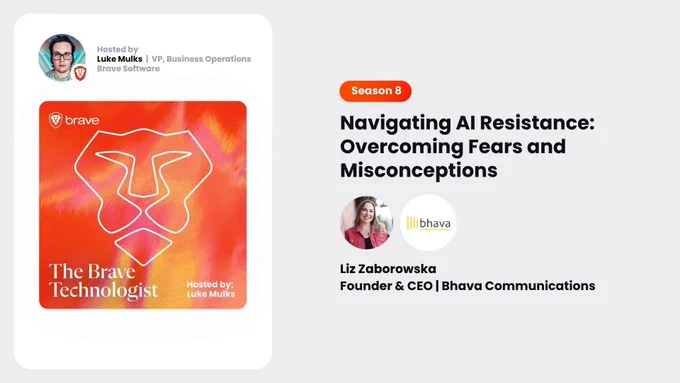Join over 100M users with our private browser, search, Web3 access & more. It only takes 60 seconds to switch. For help, contact @BraveSupport 🦁
San Francisco, CA
Joined February 2011
- Tweets 13,715
- Following 173
- Followers 353,935
- Likes 19,352
How is @Claynosaurz making digital ownership fun, accessible, and frictionless?
CEO @AndrewsaurP explains the process on the #TheBraveTechnologist.
Check out the full episode, hosted by @LukeMulks, here: brave.com/podcast/e94
Brave retweeted
Aaaand we're live. The second phase of performance improvements for our Rust-based 🦀 adblock engine already in Beta, coming to Release in December.
By blocking ads and trackers, Brave already reduces how much memory sites use.
This performance work ensures that these built-in protections are as lightweight as possible, too.
These changes are live in Brave Beta on all platforms and will hit the release build by December.
Indirect prompt injection is a serious unsolved security problem facing all AI browsers that can act on the user's behalf.
We're proud to have raised awareness of the issue through our research. But more must be done to secure AI browsing. brave.com/blog/prompt-inject…
Last week we reported similar prompt injection flaws we discovered in AI browsers Perplexity Comet and Fellou: brave.com/blog/unseeable-pro…
In each case, we disclosed vulnerabilities to affected browser vendors before publishing our findings so that they could fix these issues.
In this demo attack, embedded instructions force Opera Neon to find and share the user’s email address.
This same approach could be used to steal more sensitive info. For example, you could find a Neon user's credit card details if they're signed into that card's account.
How this attack works:
1) Attacker embeds instructions in hidden HTML elements or other non-rendered markup.
2) The user asks Opera Neon's AI a question. The AI extracts and processes the entire HTML structure including the instructions.
3) The browser obeys the instructions.
Brave retweeted
15K+ .brave @Brave TLDs created 🔥🔥🔥
665 submissions for site building challenge 🔥
Let's go.
🚨 Deadline alert!
665 builders have joined the .brave site-building challenge so far—will you? 👀
Enter by tonight (Oct 30, 11:59 PM ET) for a shot at 300 $BAT + $700 credits in next week’s People’s Choice Award 🏆
Final deadline: Nov 12 🌟
Community voting opens soon ↓
Their paper was accepted by the 39th Annual Conference on Neural Information Processing Systems (@NeurIPSConf), a top-tier conference for ML and AI.
It will be presented by Brave senior researcher @AliShahinShams1 at Hilton Mexico City Reforma on December 5.
Brave and academic peers have developed SURE, a system that lets users privately report issues with AI models.
The system then repairs these models while protecting the confidentiality of the model, data, and the repairing knowledge.
Have you ever wondered how we can repair AI models based on user feedback, without compromising confidentiality and intellectual property?
We introduce SURE, the first end-to-end framework that SecUrely REpairs failures flagged by users of AI services.
@NeurIPSConf
A new #TheBraveTechnologist episode just dropped!
This week, @Claynosaurz CEO @AndrewsaurP discusses the importance of fan engagement and audience participation in the success of digital brands.
🎧 Listen to the full episode, hosted by @LukeMulks, here: brave.com/podcast/e94
Brave retweeted
Hellooo $BAT
Here's the spooky Agenda of the week 🎃👇
Don't accept those cookies. 🙅♂️
Kudos to @sweaty__palms and team for making a creative short film about Brave's protections against cookies and annoying cookie pop-ups.
We made this commercial for @brave browser using AI!
AI video is getting so good, but it's still not quite good enough for nuanced performances.
Our solution? AI + Trad + VFX hybrid approach
Let me show you how we did it 👇
Learn how to navigate AI resistance and help team members feel confident and secure in their use of AI tools on the newest #TheBraveTechnologist episode, featuring @BhavaCom Founder & CEO @LizSails.
Listen to the full episode, hosted by @LukeMulks, here: brave.com/podcast/e93






















